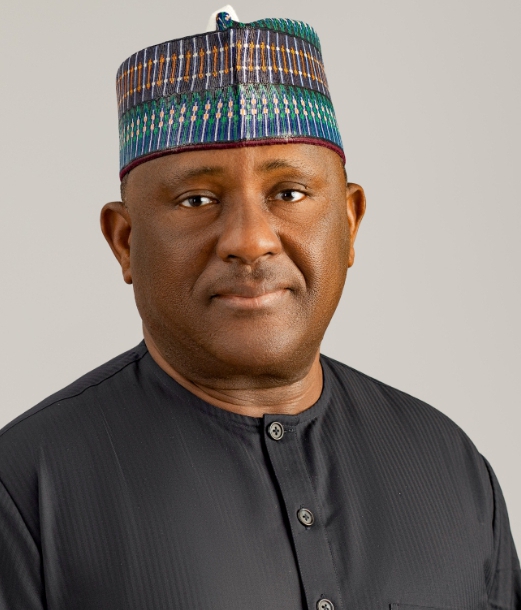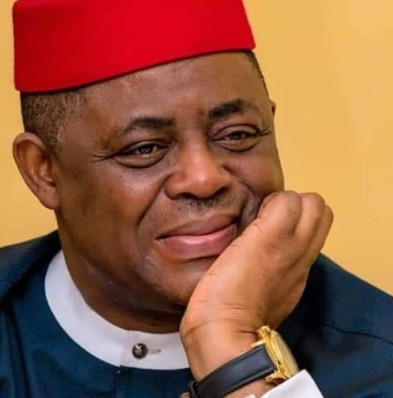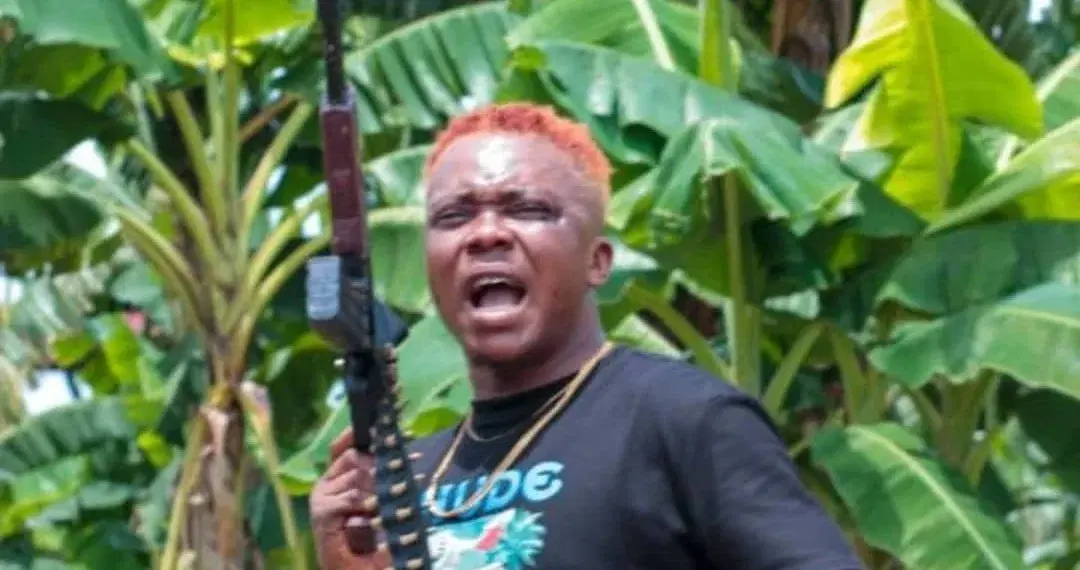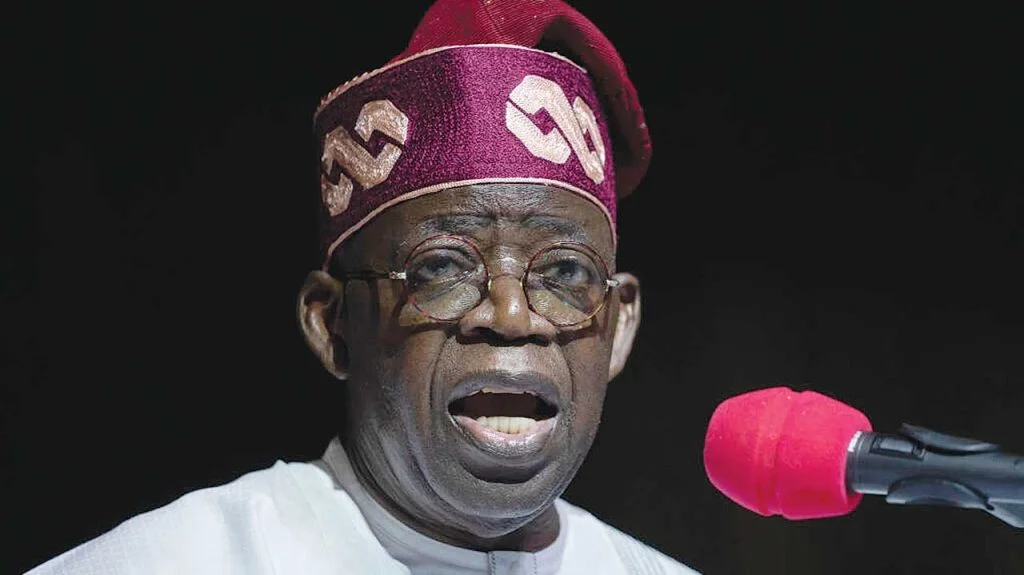If you ask him, he would tell you that he has not lived in a day, until he has done something for someone who can never repay him. Thus while some billionaires toss satellites into orbit and strive to harness the sun, Rabiu commits his fortune to nobler, simpler objectives, like raising society’s underprivileged from privation to surplus.
His footprints are prevalent in the humanitarian sector. An army of donees and devotees hang on to his beneficence. Unassuming yet indomitable, Rabiu redefines philanthropy and affluence.
At the tweak of his vision and the flick of his finger, the stock market soars or swoons hence he redesigns the paradigm of industry too.
Little wonder he has amassed an intimidating fortune.
Contrary to pervasive notions of affluence that hold most billionaires as glassy, shallow creatures, furloughed from reality all the time, Rabiu is unmistakably different.
Nestled atop his fantastic business empire, the chairman of BUA Group aspires to beneficence, guided by the wisdom of the ancients: a kind gesture can reach a wound that only compassion could heal, he has learnt.
Thus he is never far removed from his roots and the indigent, however far and near. Rabiu is compassionate in a beneficent, unrelenting sort of context. When he gives out money, he spends himself with it.
Rabiu is infinitely scarred by the depth of poverty and misgovernance inflicted on society’s impoverished hence his determination to contribute his quota to the improvement of the fortunes of society’s underprivileged.
In other words, his generosity may be the best measure of his humanity. Rabiu understands that to become fabulously wealthy and to earn great fame are triumphs not of humanity but of vanity. Thus over the past two decades of his robust entrepreneurship, Rabiu has desisted from reveling in vanity. Unlike his fellow billionaires who are so far removed from their immediate reality, Rabiu would never splurge on trifles.
Where some spend several thousand dollars at a restaurant for a nice Pinot Noir, and several millions of dollars on the new Rolls Royce Cullinan or Phantom or Ghost models, Rabiu chooses to give.
His penchant for doling out his wealth to society’s less privileged has been acknowledged from within and outside the country. More so, he is the most generous with his time and money.
Rabiu believes that the truest acts of generosity need no log-rolling and that the love of possessions is a weakness to be overcome. Hence in his simplicity, he gives away all that he has to relatives, to the underprivileged from other tribes or clans, but above all to the poor and the aged, from whom he can hope for no return.
An astute businessman, philanthropist and industrialist, Rabiu founded and Chairman of BUA Group in 1988; he subsequently nurtured the enterprise to become one of Nigeria’s largest privately-owned foods, manufacturing and infrastructure conglomerates with diversified investments spanning key business sectors of the Nigerian economy.
The story behind the success of the Chairman and Chief Executive Officer of the BUA Group cannot be fully comprehended, however, without examining how he took over from his father’s vast business empire at the embryonic age of 24 when he returned to Nigeria.
In the early ‘90s after learning the ropes of business with his unwavering commitment and determination, he meandered from the path of family business and birthed BUA Group as a private company.
This daring decision to opt out from a very already established family business turned out to be his greatest decision which has changed his life, business fortunes and the society at large.
At the height of his success, Rabiu founded the Abdul Samad Africa Initiative, ASR Africa – an African-focused Fund for Social Development and Renewal which seeks to support Nigeria and other African countries in the areas of Health, Education, and Social Development.
In addition to his economic contributions, Rabiu, through the BUA Foundation and more recently, his ASR Africa, has contributed immensely to various philanthropic and social development activities in different areas from healthcare to education, sports, water and sanitation amongst others.
On October 6, 2023, Rabiu’s ASR Africa Initiative commenced the groundbreaking ceremony of the state-of-the-art N2.5 Billion Oncology Centre which will provide services for the entire West African region in Ilorin, Kwara State. The health facility is one of many tertiary-level health interventions of the Abdul Samad Rabiu Africa Initiative (ASR Africa) under its Tertiary Health Systems Support Grant scheme. As a leading philanthropic organization committed to delivering sustainable impact in health, education, and social development across the continent of Africa, ASR Africa donated N10 billion in grants of N2.5 billion each to four States including Sokoto, Ogun, Edo and Kwara as part of the scheme.
Kwara State became one of the recipient states in the federation after the State, through its Executive Governor, Abdulrahman Abdulrazaq, presented the model for the largest Oncology Research, Diagnostic, and Treatment Centre in Nigeria. The project under the direct supervision of ASR Africa and in partnership with the Kwara Statement Government, will be equipped with the most modern technology in oncology diagnostics and treatment of patients, thereby providing Nigerians and foreign patients with world-class oncology services to facilitate early detection and affordable treatment for all types of cancers.
In October 2022, Rabiu, through ASR Africa, donated US$500,000 to the United States Agency for International Development to partner on Tuberculosis (TB) control, HIV, and gender-based violence (GBV) prevention efforts in Nigeria. Through this partnership, ASR Africa’s contribution will provide: 11 loop-mediated isothermal amplification diagnostic machines, also known as TB-LAMPs, with laboratory reagents and consumables; renovation of 10 Tuberculosis Directly Observed Therapy or DOT centers; and approximately 1,200 dignity kits for survivors of gender-based violence across selected states in Nigeria.
Before this partnership, he commenced the ongoing development of a N7.5 billion 200-bed specialist hospital in Kano State and during the global COVID-19 pandemic, Abdul Samad Rabiu championed Nigeria’s donation to the COVID-19 intervention by a single individual or corporate donating amongst other things, 1.35billion Naira to the CACOVID Private Sector Coalition; 300million Naira to the Presidential taskforce on Covid-19; over N1billion in cash donations to 10 state governments across the country; about 70 ambulances provided for over 15 states as well as the donation of medical equipment, facemasks, provision of raw/dry foodstuff for over 1.5million persons in Kano, Lagos and Rivers states, and the construction of health infrastructure.
In 2021, Abdul Samad Rabiu set up the Africa Fund for Social Development and Renewal through his ASR Africa Initiative. So far, the initiative has donated and/or commenced projects across Nigeria and Ghana including the N4 billion Police Hospital in Abuja and donated N1 billion each for six universities across Nigeria through the ASR Africa Tertiary Education Grants Scheme for infrastructural development. The beneficiaries of the N6billion Tertiary Education Grants Scheme are Ahmadu Bello University, University of Ibadan, University of Maiduguri, Nnamdi Azikiwe University, University of Ilorin, and University of Benin.
Also, Rabiu has always heeded the call to support in times of crisis, the latest being his donation to victims of flooding in Gombe State and Bauchi States. In the North-East of Nigeria, Abdul Samad Rabiu continues to be one of Nigeria’s largest private donors to reconstruction and development efforts. More recently, he also announced a donation of N10bn Security Support Fund to the Nigerian Government.
Rabiu, through his various business interests, has also been a champion of protecting the environment through his investments in manufacturing plants that meet or exceed stringent environmental standards with a focus on recycling most of their waste products, the use of cleaner energy sources like natural gas whilst reducing the environmental impact of their operations.
These businesses are also involved in various community projects across Nigeria from Water and Sanitation, Electrification, Education and Sports in line with the United Nations Sustainable Development Goals.
As a testimony to hard work, an indefatigable entrepreneurial spirit and consistently championing Nigeria as a preferred investment destination in Africa, Abdul Samad Rabiu was reappointed by President Emmanuel Macron of France as the President of the France Nigeria Business Council in June 2022.
A recipient of many awards, Abdul Samad Rabiu was awarded the 2022 CEO of the Year at the African CSR Awards, and the 2016 African Industrialist of the Year Award by the All-Africa Business Leaders Awards. Other awards include the 2022 Sun Man of the Year Award, the 2020 Vanguard Businessperson of the Year, and the New Telegraph Philanthropist of the Year 2021.
He is also a recipient of several honorary doctorate degrees from various universities including the University of Benin, Nasarawa State University, Sokoto State University and Crescent University.
Rabiu is a fellow of the Institute of Directors, and he currently holds the prestigious Nigerian national honours of Commander of the Order of the Federal Republic (CFR) and Commander of the Order of Niger (CON) as well as the highest civilian national honour in Niger Republic.























